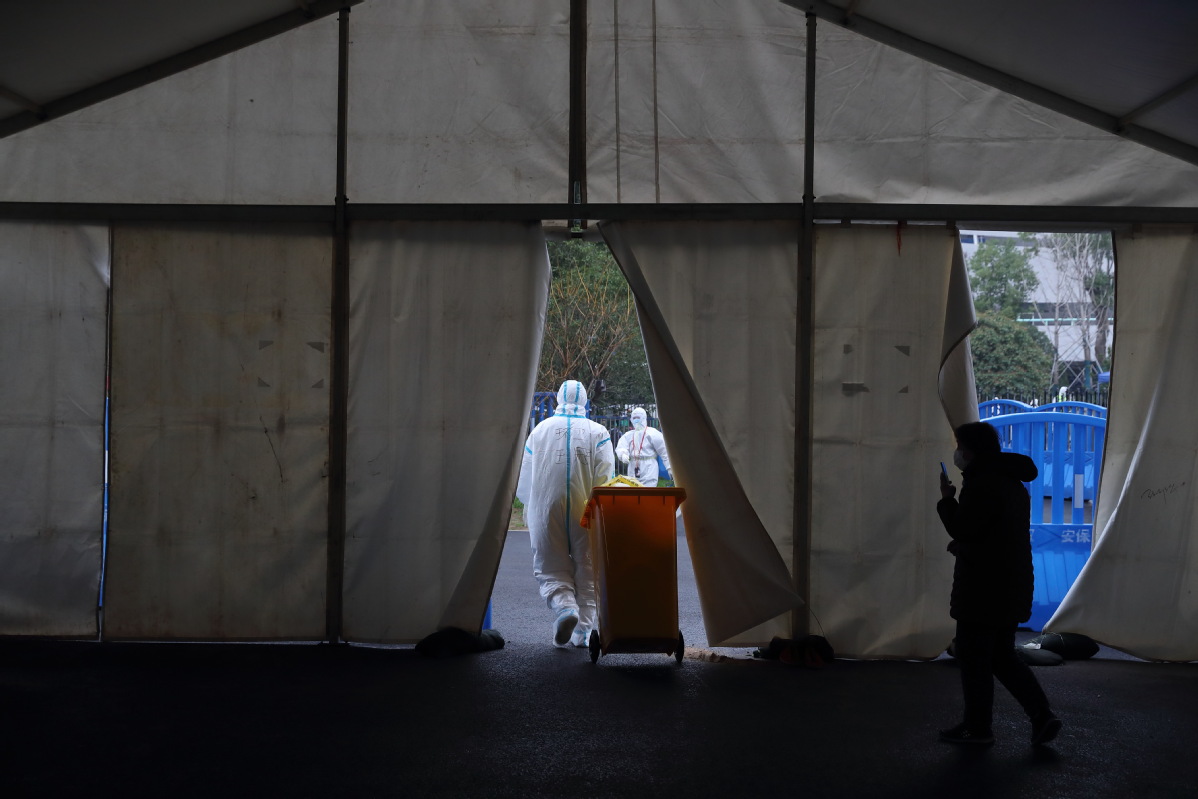Helping hands solve medical waste problem


In 2018, Wuhan disposed of 17,300 tons of waste generated in its medical facilities, according to a document released by the city's ecology and environment bureau.
In addition to the sharp rise in quantity, the composition of medical waste is now different to before the outbreak, Yang said.
Such waste usually includes a broad range of items, from used needles and syringes to soiled dressings, body parts, diagnostic samples, blood, chemicals, pharmaceuticals, medical devices and radioactive materials, according to the classification catalogue of medical waste jointly released by the National Health Commission and the Ministry of Ecology and Environment.
Due to the contagion, hospitals now categorize all waste from wards as medical waste, including face masks, protective clothing, goggles, and plates, bowls and cups used by patients, Yang said.
"That means the volume and weight of medical waste increase, requiring bigger containers and vehicles to transfer the waste from hospitals to our disposal plant," he said.
As medical waste is always collected by covered trucks for safety reasons, Yang said his company's transportation capacity failed to match demand after the outbreak.
To solve the problem, he mobilized workers and vehicles from the company's disposal plants in Liaoning and Shandong provinces. More than 120 employees have been working in shifts since the epidemic emerged.
"We work 10 to 12 hours every day," Yang said, "Everybody knows they are very close to infections, but no one has backed off. I'm grateful to my 'brothers'."
To safeguard workers and avoid the risk of infection, the company has taken rigorous measures, such as enhancing training for employees and increasing disinfection.
In the middle of last month, the situation improved as authorities in Wuhan deployed more resources to help the company with disposal work, and new facilities were set up to increase the total disposal capacity, Yang said.
Beihu Yunfeng Environmental Technologies Co, whose main business is industrial waste disposal, joined with Yang's company last month to help treat medical waste. General manager Mei Gang said the business has a disposal capacity of 15 tons a day.
"When the city's environmental authority approached me for help, I immediately agreed. However, I was worried that my employees might refuse to do such work, as their job is to dispose of industrial waste, not medical waste that might cause them to become infected," he said.
When Mei spoke to the workers about his decision, he breathed a huge sigh of relief when many offered their services voluntarily.
"We have hundreds of reasons for not doing the work, but we have only one reason for doing it-we are Wuhan citizens," Mei said. "The city has become ill. If we don't offer to save it, who can it depend on? We should do what we can, and make our contribution in the fight against the epidemic."
Mei provides his workers with top-quality equipment to protect them from possible infection and also isolates them in single rooms, where they are provided with food, to avoid the risk of disease transmission.
"More than one month has passed. To date, no one has become infected, thanks to the strengthened protection," he said.
























